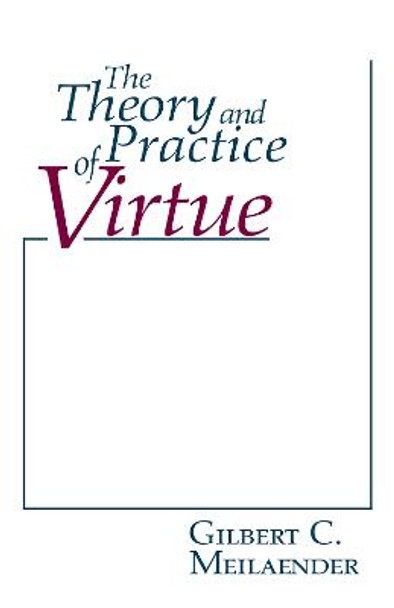Description
Many students of philosophical and theological ethics have recently experienced a renewed interest in what may be called an ethic of virtue. Such an ethic focuses less on the concept of duty-or doing-and more on being. Central to an ethic of virtue is a division of moral life that emphasizes character and character development or moral education.
The Theory and Practice of Virtue presents a series of connected essays-drawing on the thoughts of such diverse figures as Josef Pieper, Plato Lawrence Kohlberg, and Martin Luther-which explore theories of virtue and the practical task of being virtuous. Meilaender follows his consideration of the conceptual difficulties of moral education with a discussion of the practical problems and dangers of attempting to teach virtue, and more generally, of the problems of observing an ethic which emphasizes virtue within a theology that emphasizes grace. Chapters devoted to particular virtues and vices-the vice of curiosity and the virtue of gratitude-explicitly illustrate the book's central thematic concerns.
About the Author
Gilbert Meilaender holds the Phyllis and Richard Duesenberg Chair in Christian Ethics at Valparaiso University, Indiana. He has served on the Board of Directors of the Society of Christian Ethics, as an Associate Editor of Religious Studies Review, and as an Associate Editor of the Journal of Religious Ethics. He is also a Fellow of the Hastings Center and was a member of the President's Council on Bioethics from 2002 to 2009. He is a Distinguished Fellow with The Center for Bioethics & Human Dignity. He is the author of Friendship: A Study in Theological Ethics (Notre Dame Press, 1981), The Theory and Practice of Virtue (Notre Dame Press, 1984), and Faith and Faithfulness: Basic Themes in Christian Ethics (Notre Dame Press, 1991). Meilaender has been a member of the President's Council on Bioethics since its inception in January 2002.
Reviews
"[This] is a study in which Christian moral tradition, classical philosophical insights, and contemporary intellectual concerns are blended into a coherent whole. . . . In my judgment the best single chapter in the book is the first: 'Thinking about virtue.' For persons unfamiliar with the virtue perspective on ethics this is a lucid and persuasive exploration of the role of virtue in conceiving what morality is all about. It would be particularly useful in a beginning class on religious ethics." -Journal of Religious Ethics
"The Theory and Practice of Virtue is a collection of interrelated essays on aspects of the theme of virtue: some on the topic in general, some on its relevance to education, one each on a specific vice (curiosity) and virtue (gratitude). Of these the discussions of the strengths of Joseph Pieper and of the weaknesses of Lawrence Kohlberg are among the best, but the essay on Martin Luther stands out and has the greatest theological interest. . . . [This book] will serve well in courses introducing its topic." -Horizons
"...cleanly written, sensibly argued and firmly traditional essays. Meilaender looks for guidance to thinkers like Plato, Thomas Aquinas, Martin Luther and Josef Pieper. He is a lively expositor of the ancient (and modern) belief that morals are a rational human endeavor ultimtely founded on revelation and grace." -The Christian Century
Book Information
ISBN 9780268018535
Author Gilbert C. Meilaender
Format Paperback
Page Count 204
Imprint University of Notre Dame Press
Publisher University of Notre Dame Press
Weight(grams) 245g
Dimensions(mm) 216mm * 140mm * 11mm






